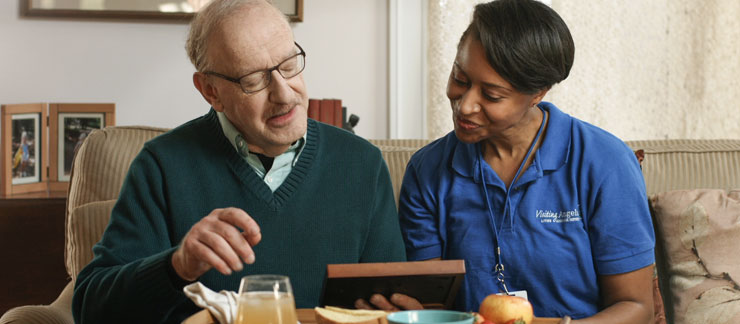Why Caring for a Parent Who Has Dementia is the Ultimate Challenge
Dementia can make even the most reliable, most capable family caregiver feel helpless. Diseases are not easy to handle, but the way dementia changes the brain and therefore the memory, body, mood and personality of the person affected makes it especially challenging. The brain is the control center. When that is compromised, the results are devastating.
The Only Thing Certain
The unpredictability of dementia is one of its hallmarks. One day, your mom may recognize you and call you by name after weeks or months of calling you something else or looking at you as a stranger. One week, your dad may take a turn for the worst, and you start making plans and preparations. The next, he may bounce back and show you a strength you didn’t think possible anymore. Physical strength, ability to handle daily tasks and bodily function can vacillate too. On Tuesday, your mom might be able to dress herself, even if you have to set out the clothes for her in advance. On Wednesday, she may look at the clothes as if she has no idea what they are, who they’re for or what to do with them.
For you as the family caregiver, riding this roller coaster with your loved one is draining in and of itself. You feel out of control, helpless to know which end is up or what’s best for your loved one. You may find yourself with limited patience and compassion no matter how many times you tell yourself, “It’s the disease’s fault, not the person’s.” And because dementia is so unpredictable, a time frame is rarely in the picture. This decline, or even the up and down of it, can go on for weeks, months, years, decades.
That thought is often too overwhelming for family caregivers to truly face, and understandably so. But the reality is this: you need help. Acting alone is often not just unrealistic, but dangerous.
Self-Care is Not Selfish
Too many family caregivers think not being able to do it alone implies weakness—or that the need for self-care is selfish. Nothing is further from the truth. The very nature of dementia and all it entails emotionally, physically, mentally, and spiritually requires support, respite, a team effort. To run the marathon of dementia caregiving, you need trustworthy people to whom you can pass the baton when you need a break. You need the chance to relinquish your role as primary, round-the-clock family caregiver and instead take the role of loving, encouraging child to a parent lost in the fog of dementia.
Because by not getting yourself respite care, a much-needed break, you risk health concerns of your own. Consider the following findings from a National Institute of Health study on family caregivers:
- Caregiving often results in chronic stress, which comprises family caregiver’s physical, psychological health
- Depression is one of the common adverse effects of family caregiving
- Caring for a family member with dementia is especially challenging, causing more adverse health effects than other types of caregiving
Finding a Way Forward
If you’re feeling burned out, act immediately. Start researching respite care options. If your parent has medical needs, you may need to consider home health or palliative care. If you feel you can meet your parent's basic needs—like getting dressed, bathing, or toileting—you may want to consider professional home care for companionship or to do light housecleaning. Whatever your situation, there are care options to come alongside you, or fill in the gaps, or take over temporarily or permanently.
The good news? You don’t have to decide right now what kind of care you’ll choose. Take the first step to learn more. Give Mom or Dad time to adjust to the idea of a professional caregiver besides you. Go easy on yourself through this process; there will be ups and downs.
With dementia, some days will be harder than others—whether or not you have a professional caregiver’s help. And if you feel your parent won't be receptive to a professional caregiver, click here for strategic methods on having that discussion.













